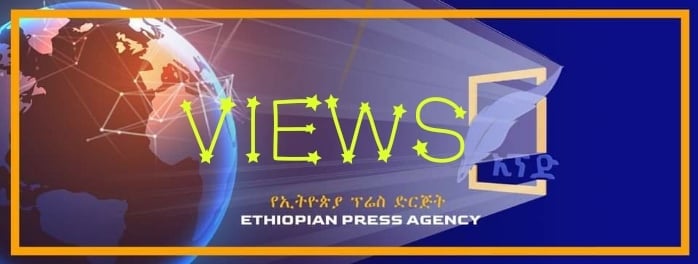
African solution for an African problem has been the tone of the Ethiopian foreign policy especially since the establishment of Organization of African Unity (OAU). Emperor Hailesellassie I of Ethiopia has played the prominent role in this aspect and his successors including the incumbent have continued to do so. Ethiopia doesn’t have the culture of exporting its problems and disagreements with its neighbors to the outside world but trying to deal and solve it within the region. This diplomatic nuance is embedded in our foreign relation practices. This same diplomatic move is brought to the table by Ethiopia for the current tension over the Great Ethiopian Renaissance Dam (GERD): African solution for African problem.
The recent tension among Sudan, Ethiopia and Egypt has escalated than ever after Ethiopia announced that it is about to fill the dam’s reservoir for the second round. The Pharaohs have tried everything they could to hinder (and stop is possible) the filling of the dam. However, it is unfortunate that Egypt’s call to the international community particularly the United States bear no fruit.
The US has been threatening Ethiopia to withhold development aid if Ethiopia moves forward with filling the dam without a “comprehensive” agreement is reached among the major parties. United States’ proposal for a “comprehensive” agreement is of course in favor of the Pharaohs. Well, on the Ethiopian side, agreement is welcome if its intention is genuine and serves its interest in a way that doesn’t compromise the interests of the parties involved. Egypt and Sudan, particularly the former, has shown no intention of reaching on an agreement to be made over the equitable distribution of the River Nile.
Many experts on the area have repeatedly been saying that the GERD, when completed, would bring enormous benefits for the region in particular and Africa in general. We Ethiopians do deeply understand how significant the water from the Nile is for the people of Sudan and Egypt and that is the main reason why we have been calling to a peaceful negotiation with Sudan and Egypt. On the other hand, Ethiopia as a negotiating party that contributes more than 86 percent of the Nile water as approached the negotiation table with the humblest of all diplomatic moves so that the parties would reach on a conclusive agreement that ensures the benefit of all parties involved. And for the realization of this conclusive agreement, Ethiopia is pressing forward with its long-lived proposal which is African solution for an African problem.
Ethiopia stands firm on its argument that the construction of the GERD will not have a detrimental impact on the water flow into the Nile. On the contrary, the completion of the dam will provide enormous benefits to the riparian states and also Africa, Ethiopia argues. Beginning from the supply of affordable electric power to the mitigation of seasonal droughts, the GERD brings a blessing to the region. Particularly for Ethiopia, the dam would help us to realize one of the key provisions of the UNs Sustainable Development Goals, which calls for the universal access to affordable and reliable sustainable energy by 2030.
Egypt and Ethiopia are going through an escalated diplomatic contest after the Washington-mediated negotiations failed following the withdrawal of Ethiopia from the table. Egypt with a relatively proactive diplomatic moves than Ethiopia, has managed to get a full support of various international bodies. The Arab League has on this regard passed a resolution that supports Egypt’s claim of the Nile water as a “historic right”. The Blue Nile and other tributaries flowing from Ethiopia make up about 86 percent of the water flows of the main Nile. However, the 1929 Anglo Egyptian Treaty between Britain’s colonies Sudan and Egypt, which of course was updated and signed again in 1959 between an independent Sudan and Egypt leaves Ethiopia and other riparian states with no share from the water of the Nile.
Ethiopia on the other hand is challenging this old treaty that leaves no share of the Nile for her by constructing the GERD. Egypt fears that the construction of the dam would reduce the flow of the water and hence threatens her very existence. The claim of Ethiopia to use the water from the Nile is natural, as it is the major contributor of the Nile.
Besides, Ethiopia is facing a burgeoning population growth which would leave her poorer in the years to come unless significant measures like construction of the GERD are taken. For how long would we Ethiopians fill our markets with Egyptian products produced using our own water? For how long would we remain poorer having such God-given natural resource? For how long would we sing for the Nile (Locally called Abay) without having any benefits from the water? This has to stop and we need to figure out a way in which we can also get a share of the pie with our own water and effort. Well, GERD is the answer for this. It is therefore to announce that any force that stands against this national effort is considered as our national enemy which enjoys watching videos of our starvation and inefficient economy.
Now, we have reached at a point where cooperation among the three conflicting states and other riparian states is seriously essential. For all the riparian states, the time has come to solve the water crisis over the Nile on a round table. Any option otherwise would harm all. Therefore, it is a humble call for unity. If Nile is not for all, it will be for none.
Although the immediate issue at stake—securing a technical agreement on the filling of the GERD’s reservoir—is among Egypt, Ethiopia, and Sudan, the broader and longer-term goal should be for all 11 states—including Tanzania, Uganda, the Democratic Republic of Congo, Rwanda, Burundi, Kenya, Eritrea, and South Sudan—to agree on a legal regime for the management of this important watercourse. Such a meaningful resource-sharing agreement should not only resolve the conflict over water-use rights among the riparian states, but it should help define concepts such as equitable and reasonable use and significant harm, which have been used by the downstream states in their criticisms of the GERD.
Poverty alleviation being the major concern for all Nile Basin countries, they could sit around the table and form the basis of a cooperative arrangement among themselves. As they consider this controversial issue, especially during this time where the GERD is nearing completion, all 11 riparian countries should seek to improve relations among themselves beyond their
relationship with the Nile, especially in mutually beneficial areas such as trade; educational and cultural exchanges; the management of natural resources, including water; dealing with threats to peace and security, including the suppression and prevention of terrorism and extremism; and confronting major challenges to economic growth and poverty alleviation, such as climate change, widespread illiteracy, and poor infrastructure.
The Nile riparian states must understand that the river is a common resource whose effective management must be approached from a basin-wide perspective. Thus, it is only through cooperation that Egypt, Ethiopia, Sudan, and the other riparian states can peacefully resolve conflicts over the Nile and achieve the type of water use that will contribute significantly to regional economic and human development.
Exporting the conflict and inviting unnecessary intervention would only bring a detrimental impact on all the states involved. Such cooperative agreements would not only bring benefits for the riparian states but also for the whole Africa both in terms of peace and security and economic growth of the continent.
Notwithstanding the raging dispute over the dam, Ethiopia, Egypt, and Sudan are expected to face a severe water shortage because of population growth, economic development, and climate change. To alleviate a potentially devastating water crisis, they must redirect their focus from short-term problems to a strategic, long-term cooperation to address the expected shortage through water conservation, economic trade, and technological adoption.
Bonded by a shared river and a long history, and increasingly interdependent on each other, Ethiopia, Egypt, Sudan do not have any choice other than negotiating in good faith to overcome the challenges on their paths. With a clear understanding of their shared destiny, it should not be impossible to reach an agreement that will satisfy Ethiopia’s development aspirations without undermining Egypt’s and Sudan’s water security.
The leaders of the three countries should pursue a bold and inclusive vision to craft a cooperative agreement that serves all countries that share the Nile. In the end, all 11 riparian states must understand that the way forward calls for the establishment of a meaningful resource-sharing agreement, one that sees and recognizes the Nile River as a regional watercourse.
African Solution for African Problem!!
BY WOSSENSEGED ASSEFA
The Ethiopian Herald June 10/2021





